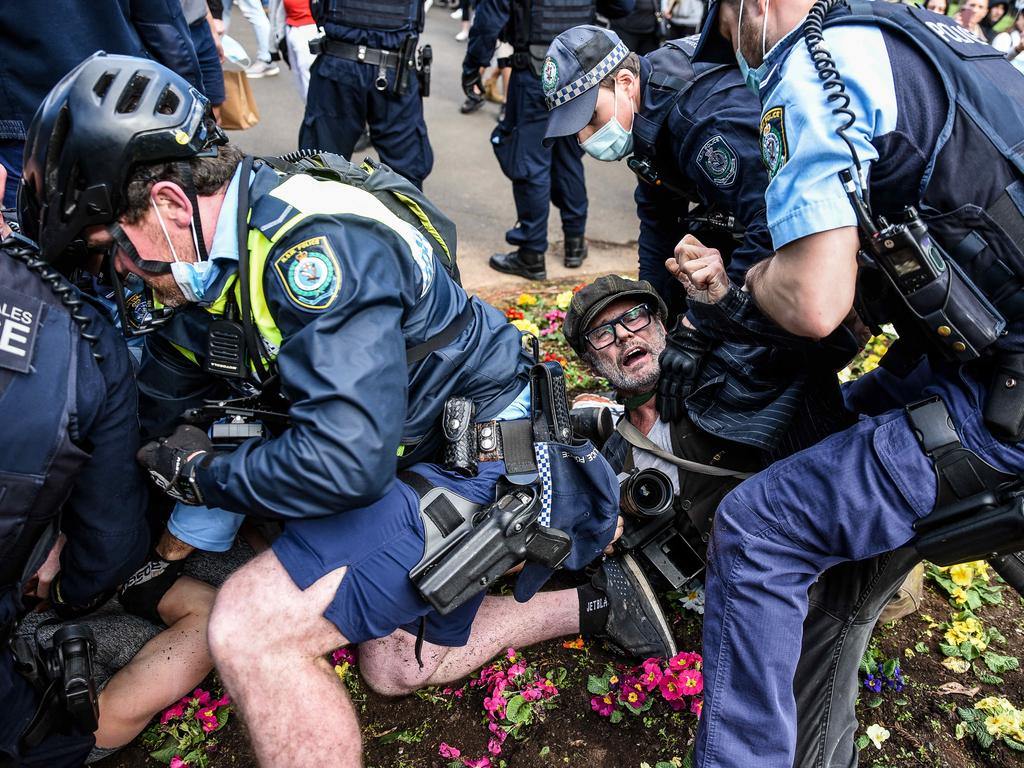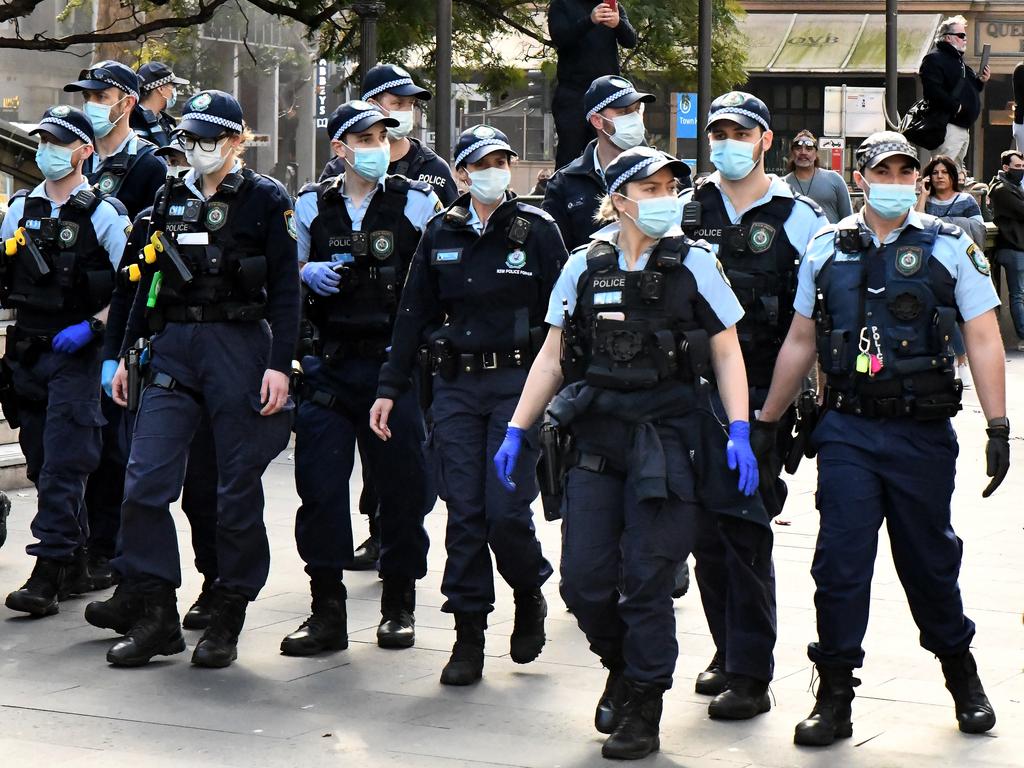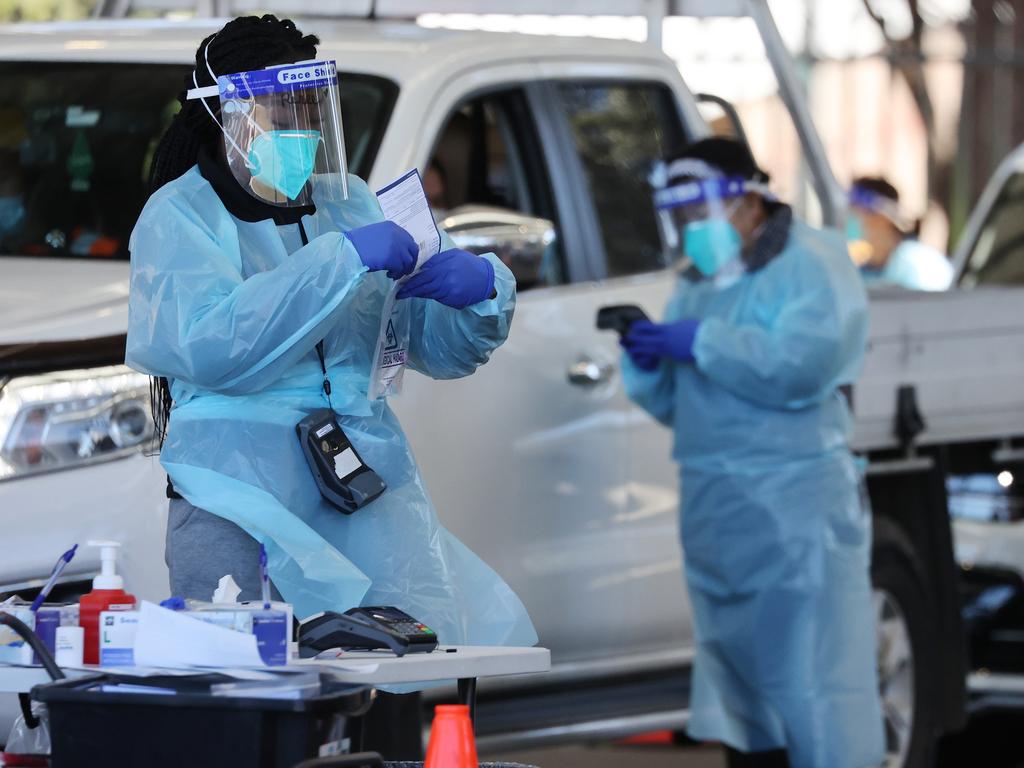World reacts to Australia’s latest spate of lockdowns
Australia has gone from being heralded for its success in suppressing the Covid-19 virus to being branded a prison for its residents.
Not long ago, Australia was the envy of the world for its success in suppressing the Covid-19 virus. But now some residents have said they feel like “prisoners” under the latest wave of restrictions.
Australia’s strategy throughout the pandemic has been to close its borders and introduce sharp lockdowns and restrictions to deal with coronavirus outbreaks as they emerge.
But the highly transmissible Delta variant has changed the playing field, and this strategy isn’t working as effectively as it has done in the past, leading to longer, more frequent lockdowns 18 months since the pandemic first began.
Greater Sydney has been in lockdown for a month and there is speculation restrictions could be extended into mid-September, with at least 2226 cases linked to the state’s latest outbreak.
Victorians are also in their fifth lockdown after Sydney’s outbreak spread to the neighbouring state, with 11 new Covid-19 cases recorded on Monday.
RELATED: Sydney lockdown ‘simply not working’


RELATED: Anti-lockdown protesters to strike again
South Australia also imposed a seven-day lockdown after the state recorded new coronavirus cases.
In comparison, places across the US and the UK are easing restrictions despite recording thousands of new cases each day.
While the Australian strategy has helped keep case numbers and deaths very low when compared to countries around the world, those outside of Australia who once lauded our success in driving down infections are now criticising our response.
“More than a year on, Australians remain shut inside their gilded cage, relying on a series of short, sharp lockdowns to quell an outbreak of the highly contagious Delta variant,” a recent CNN article claimed.
“‘Fortress Australia’ is now facing uncomfortable questions about just how far this island sanctuary is willing to go to protect itself from external threats including raising the drawbridge to its own citizens.”
A recent article by Bloomberg claims Australia’s Covid-zero strategy has “hit a wall”.
“While the US and UK plough headlong into reopening, across the other side of the world half of Australia’s population is back in lockdown,” the article states.
“The country’s ‘Covid-zero’ approach to containing the virus – once the gold standard, with its aim of keeping out all cases via mandatory hotel quarantines and travel bans – seems to have reached its limit as the highly contagious Delta strain slips through fortified international borders, seeding infections in the once envied, once largely virus-free haven.”
The article claims Australia will need to “adjust the way it views cases” and quickly ramp up vaccination rates if it is to keep up with the rest of the world in accepting that coronavirus is here to stay.
On Sunday, the Wall Street Journal published an opinion piece titled “Covid mania returns Australia to its roots as a nation of prisoners”.
“A good 18 months into the pandemic, the nation is still trapped in April 2020,” the article states.
“Australians need permission from the Federal Government to leave the country – applications succeed about half the time – and Australia’s states throw up their borders against one another at the slightest hint of trouble.
“So how did Australia become a hermit kingdom? Geography plays a large part. By mistaking their good luck for brilliance in being able to pull up the drawbridge to the world at the start of the pandemic, Australians quickly became trapped in an “elimination” mindset that is now officially referred to as Covid-zero.”
Protesters swarm city centres
Thousands of Aussies also seem to agree that repeatedly locking down isn’t the answer, choosing to express their frustration by swarming the Sydney and Melbourne CBDs in protest, an act experts warn could lead to the lockdowns being extended even further.
Many see Australia’s bungled vaccination rollout as a contributing factor for the ongoing lockdowns, with CNN describing the process as “achingly slow”.
NSW Premier Gladys Berejiklian has repeatedly said vaccination rates need to rise significantly before the state can get back to a sense of normalcy.
So far 13 per cent of the Australian population is fully vaccinated against Covid-19, compared to 55 per cent in both Canada and the UK, and 49 per cent in the US.
RELATED: Protest could lead to full NSW lockdown
Genevieve Neve, a 38-year-old actor who moved to Australia from San Diego as a teenager, is currently living under lockdown restrictions in Melbourne.
She told CNN she and her family feel like “prisoners” due to the continual lockdowns.
“Australia was a penal colony, and it kind of feels like that now,” she said.
“We feel like prisoners in this country.”
Genevieve, who lives with her tattooist husband and their two-year-old daughter, claims her family have received “little” government assistance when the lockdowns saw them unable to work.
The tough restrictions also meant she was unable to attend her aunt’s funeral in the US.
The 38-year-old said she used to feel good about living in Australia during the pandemic when watching the outbreak spread across the US, but now her view has shifted.
“This time last year I felt a lot better living in Australia than I did in America, because it seemed quite chaotic over there,” she told the publication.
She said the Biden administration’s vaccine rollout meant there was now “more of a sense of hope in the States”, adding she was “dying to get vaccinated” but can’t because she is “too young”.
Currently in Australia, vaccines are being offered to people over the age of 40 and those in other eligible groups such as health and aged care workers, those with disabilities or certain health conditions and Aboriginal and Torres Strait Islander people over the age of 16.
However, anyone who isn’t a part of these eligible groups can book in to get the AstraZeneca vaccine after speaking with their GP.

Shocked reactions to Australia’s lockdowns
The overseas response to the latest restrictions come about a month after parts of Queensland, NSW, the Northern Territory and Western Australia all introduced lockdowns after recording new Covid-19 cases.
The harsh response at the time also prompted shocked reactions from many overseas media outlets.
“The outbreak is still extremely mild by global standards – no one has died from Covid in Australia since last year,” The New York Times wrote at the time. (Since the new outbreak in NSW there have been 10 deaths.)
“But health officials expect case numbers to increase over the coming days as the Delta variant spreads through close contacts.”
Bloomberg said the latest outbreaks showed “the limits of Australia’s so-called ‘Covid-zero’ strategy, which has relied on closed international borders and rigorous testing to eliminate community transmission of the virus”.
“While nations such as the UK and US are preparing to open up their economies after widespread vaccinations, a slow rollout in Australia means the economy, and particularly domestic tourism, remains vulnerable,” Bloomberg wrote.




